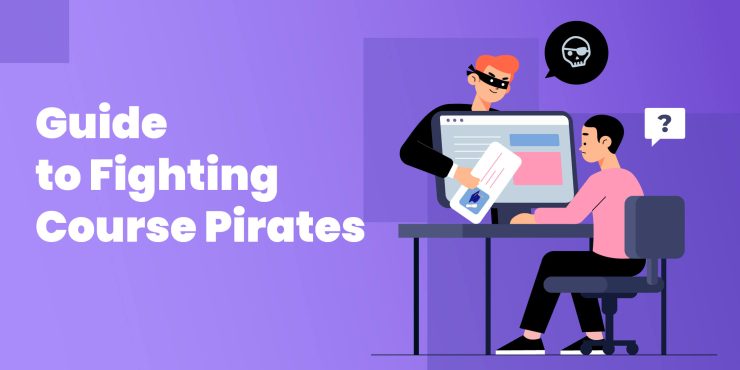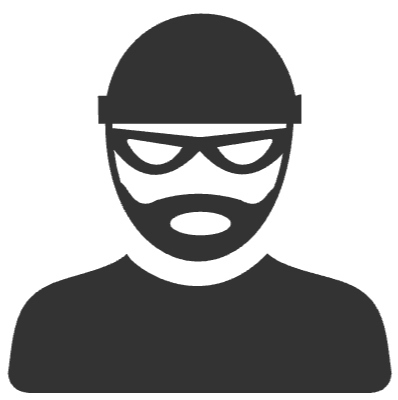Remember that awesome AI writing course we launched at the beginning of the year?
Someone stole it.
But we got it back. Or, rather, hired someone to get it back.
Here’s how we did it.
Eliminate Pirated Copies of Your Course
Our course was stolen! Someone else was making money off of our hard work. So, we found an anti-piracy expert to reclaim our lost rankings and stop unauthorized copies. Now you can work with him too.
- Avoid lost revenue when others monetize YOUR content
- Stop brand damage when your name is used on shady websites
- Prevent pirated copies from appearing above you in search results
Table of Contents
We offer this website completely free to our visitors. To help pay the bills, we’ll often (but not always) set up affiliate relationships with the top providers after selecting our favorites. However, we do our best not to let this impact our choices. There are plenty of high-paying companies we’ve turned down because we didn’t like their product.
An added benefit of our relationships is that we always try to negotiate exclusive discounts for our visitors.
How to Tell If Your Course Is Stolen
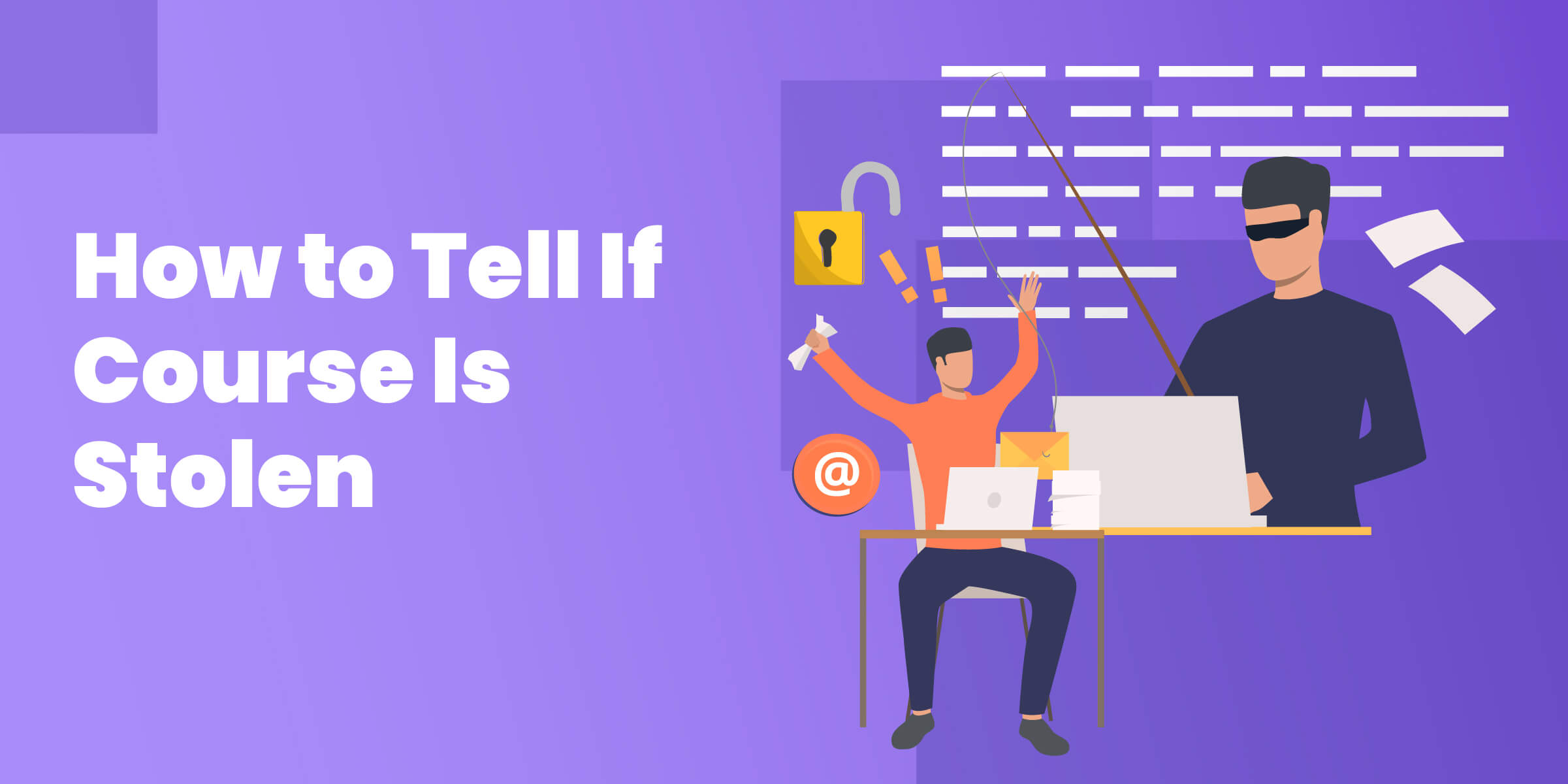

How do you know if your course has been stolen? You have to search.
By typing the name of your course into search engines, social media sites, and pirating sites, you can find copies of your course that have been pirated and sold at a reduced price or offered for free on sites other than your own.
Here’s more on how to look and what to do when you find pirated copies of your course.
Learn how to prevent this from happening in the first place
Look for Pirated Copies
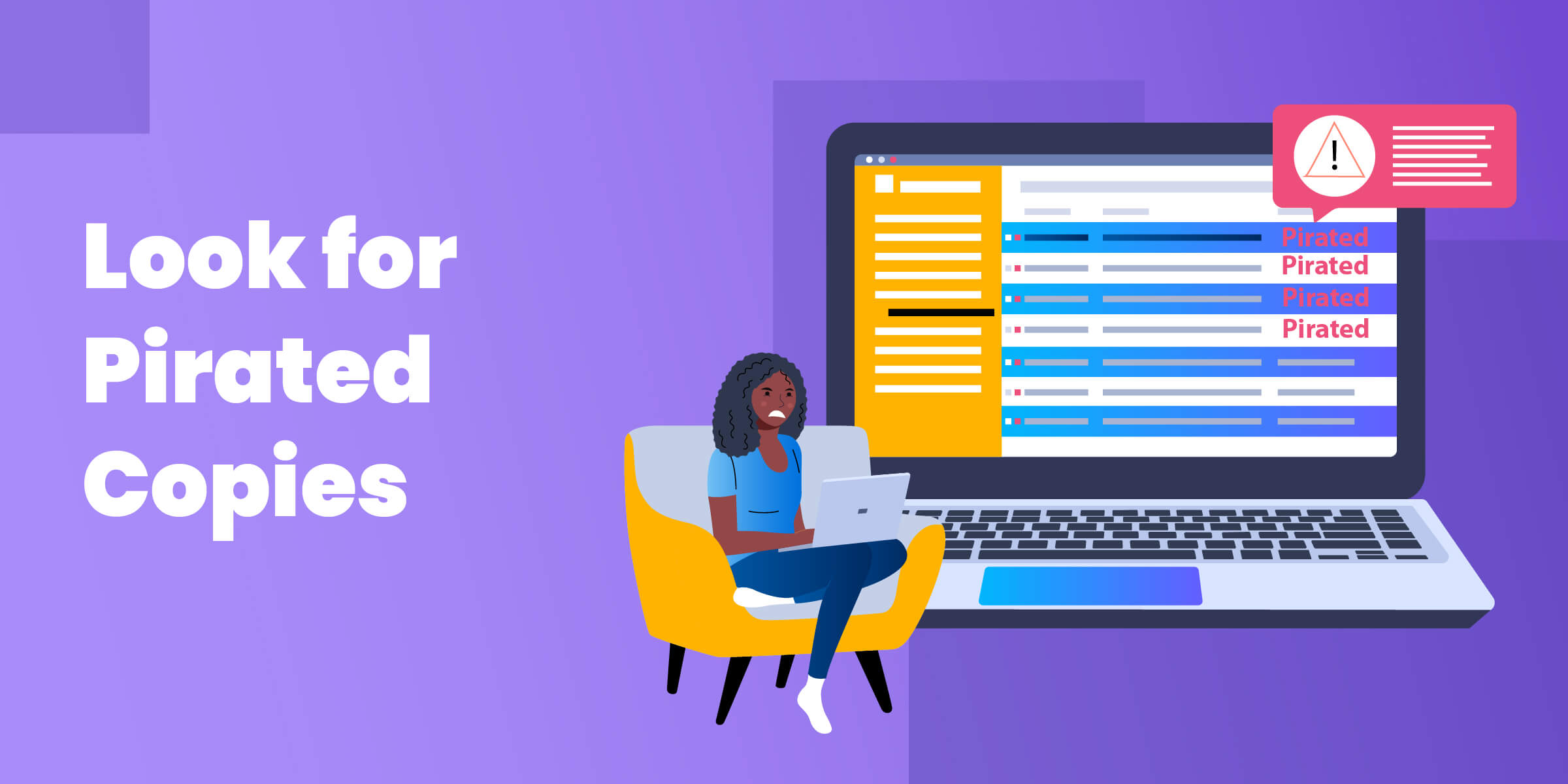

Before you can take down pirated copies of your course, you have to find them first.
Enter the title of your course into good old Google, Bing, Yahoo, AOL, Yandex, etc using multiple effective keywords to see if anything besides your course pops up.
You may have to click through quite a few pages to see as many possibly pirated versions as possible.
Here’s what it looks like when we search our class:
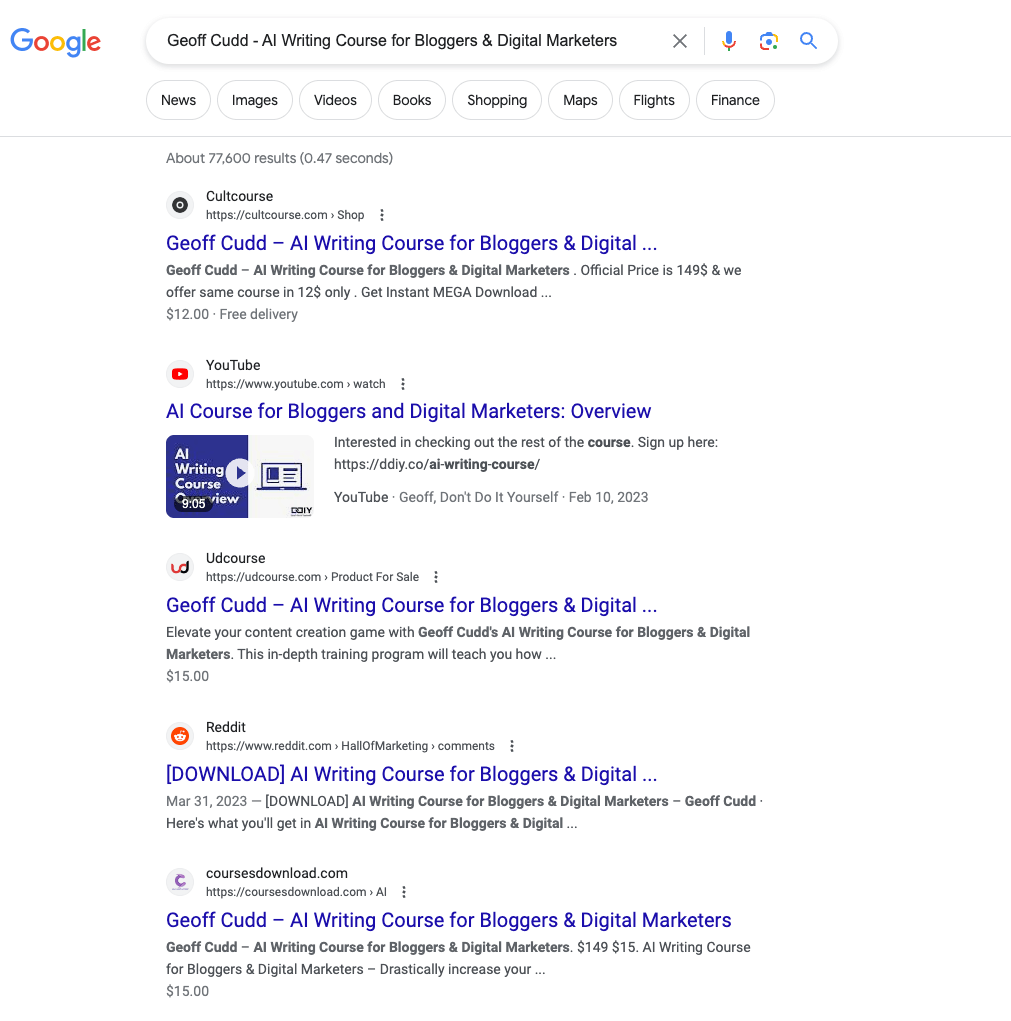

See all those sites that aren’t our site? Those are the work of sneaky pirates who want to profit off our work.
However, our vetted partner (more info below) was able to successfully remove most of these sites from Google. Here is a screenshot of the same search after we used the service:
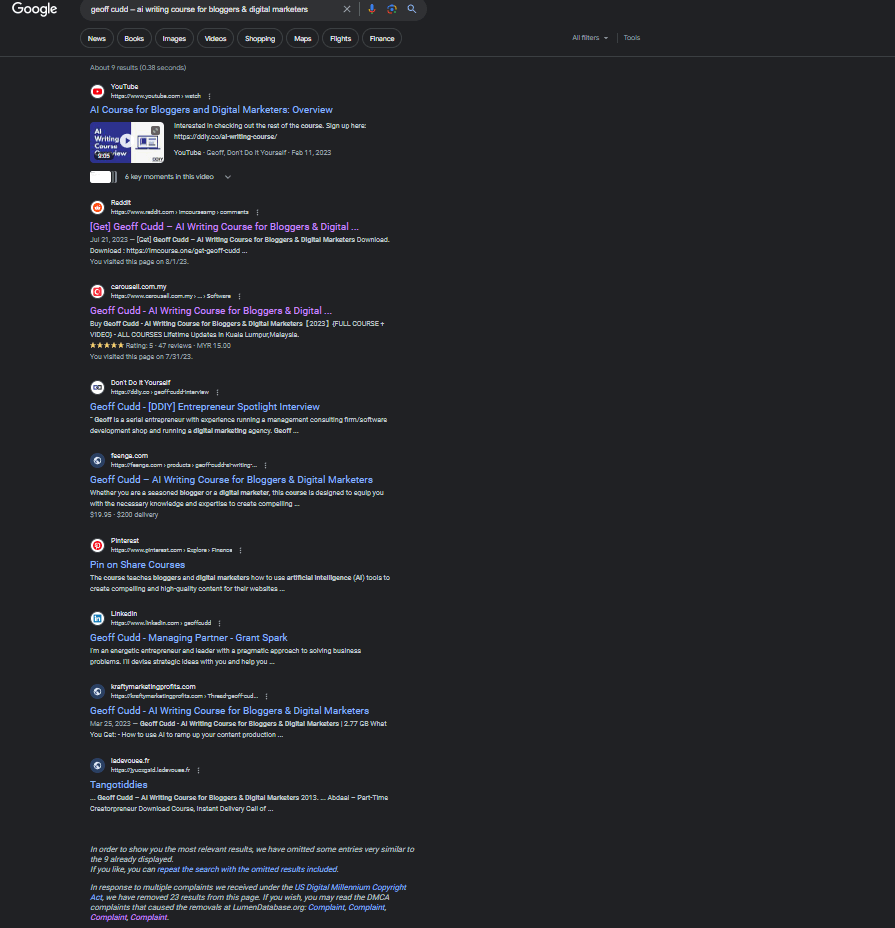

Reach out to Websites


You’ve collected evidence and now it’s time to go directly to the source.
We go after the pirated websites themselves and send notices directly to them to remove the pirated copies from their websites. Since they are generally running a scam, they get plenty of these requests and it’s generally in their best interest to not get sued.
We also go above them and reach out to their hosting providers and domain registrars as well to let them know what’s going on.
Reach out to Search Engines – Deindex


Go after search engines and get these pirated websites de-indexed (removed) from search results.
This helps ensure that a potential customer doesn't end up on these fake websites instead of taking our course directly from our site in the first place. Getting the pirated versions de-indexed also helps in terms of SEO to help clean search results and rank more relevant results on the first page instead of these pirated websites.
This process also helps if the infringing website is not willing to remove the content directly.
Send DMCA Takedown Notice
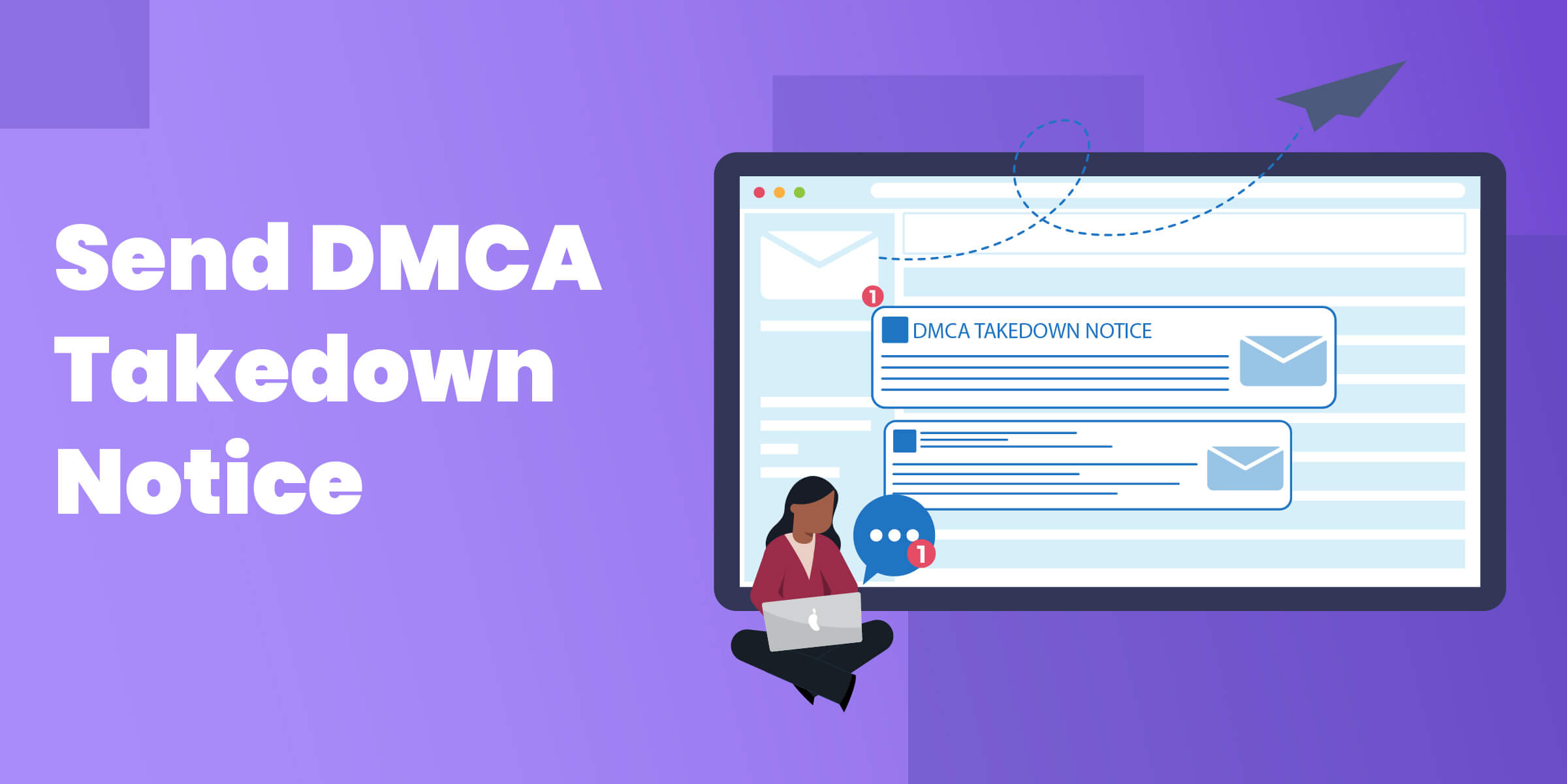

Now you’re going to send them a strongly worded email.
Find the appropriate party to contact and send them an email detailing who you are, what law they are breaking, and what you want them to do.
Check out this template from Minclaw for inspiration:
- “My name is {Your Full Legal Name}, I am the exclusive rights holder for content that is appearing on your website. This email is official notification under Section 512(c) of the Digital Millennium Copyright Act (“DMCA”), and I seek the immediate removal of the following infringing material from your servers.”
What Is a DMCA Takedown Notice?
Per the official DMCA website, a DMCA (Digital Millennium Copyright Act) takedown is “a legal mechanism used by copyright holders to request the removal of infringing content from websites and online platforms.”
The Digital Millennium Copyright Act is “a 1998 United States copyright law that criminalizes the production and dissemination of technology, devices, or services intended to circumvent measures that control access to copyrighted works.”
DMCA takedowns extend to Internet Service Providers (ISP), web hosting providers, and search engines.
Reach out to Social Media Platforms


Unfortunately, word gets around pretty quickly when there are free/cheap pirated copies of your course floating around.
That’s why you’re going to want to go after social media sites like Facebook, Youtube, and Reddit to find pirated copies on these platforms. These places are typically where these pirates try to give them away for free or sell them.
Next, it’s time to call Zuckerburg. Not literally, but you get the point.
We will reach out to social media platforms and marketplaces to report these infringing posts and listings to get them taken down from their platforms.
This means you will have to reach out to each site individually, which can be a pain.
Reach Out to Payment Gateways
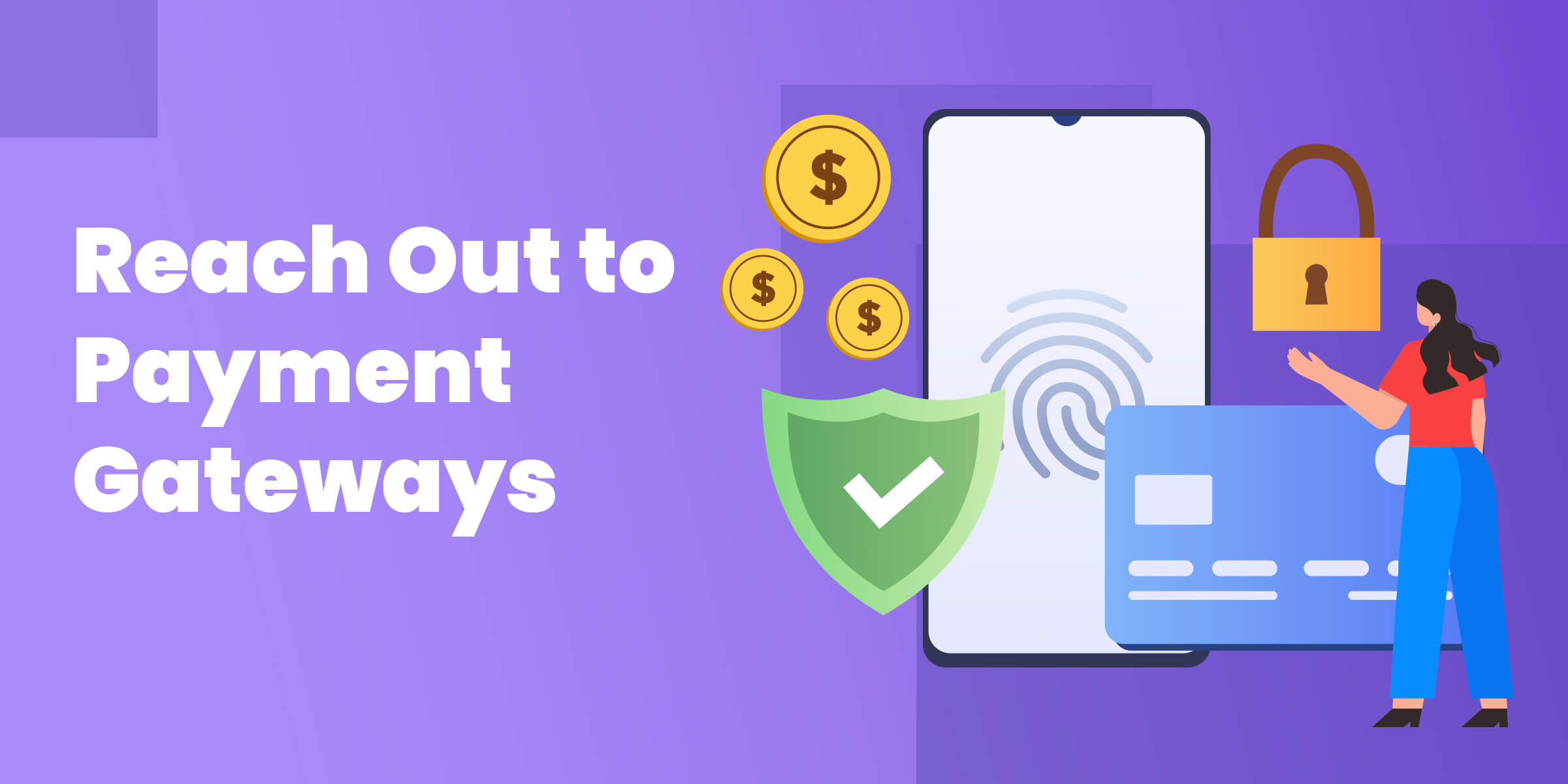

Still not getting through to the pirates? It’s time to hit them where it hurts: their bank account.
In extreme cases, we reach out to their payment gateways like Paypal to get them suspended. When they’re not making money, they’re more likely to listen and take your content down.
Monitor Regularly
Wow, you finally managed to get all of the illegal copies of your course taken down, now you can rest… right?
Wrong.
These pirates are sneaky and they really want to make money off of your work. It’s important to constantly monitor all of the sites to make sure no extra copies of your course are floating around.
Sound Too Complicated? Use a DMCA Takedown Service
Sounds exhausting, right?
We thought so, too, which is why we are offering our own service.
Eliminate Pirated Copies of Your Course
Our course was stolen! Someone else was making money off of our hard work. So, we found an anti-piracy expert to reclaim our lost rankings and stop unauthorized copies. Now you can work with him too.
- Avoid lost revenue when others monetize YOUR content
- Stop brand damage when your name is used on shady websites
- Prevent pirated copies from appearing above you in search results
If you're a course owner and someone requests their money back, here's how you can handle course chargebacks.
Frequently Asked Questions
My course was pirated, what is the first step?
The first step is to locate all of the pirated copies of your course on the internet.
How hard is it to take down pirated courses?
It’s pretty hard to take down pirated courses as you have to locate and reach out to the site owners directly and, even then, some don’t listen to DMCA takedown letters.
How long does the takedown process take for pirated courses?
The takedown process for pirated courses can take up to 6 months, depending on where the pirated copy is located if you do it on your own. Many freelance DMCA takedown services can get pirated courses taken down in as little as 24 hours.
Where is the best place to find DMCA takedown services?
The best place to find DMCA takedown services is Upwork, Fiverr or Vetted expert or DMCA/Copyright protection agency that can help you protect your content from piracy and infringement.
Can I protect my Ecommerce from piracy under DMCA?
Yes, you can protect your Ecommerce store under DMCA if someone uses your product images on their store or has stolen your ads and are running ads on Facebook or Tiktok, you can report them under DMCA.














